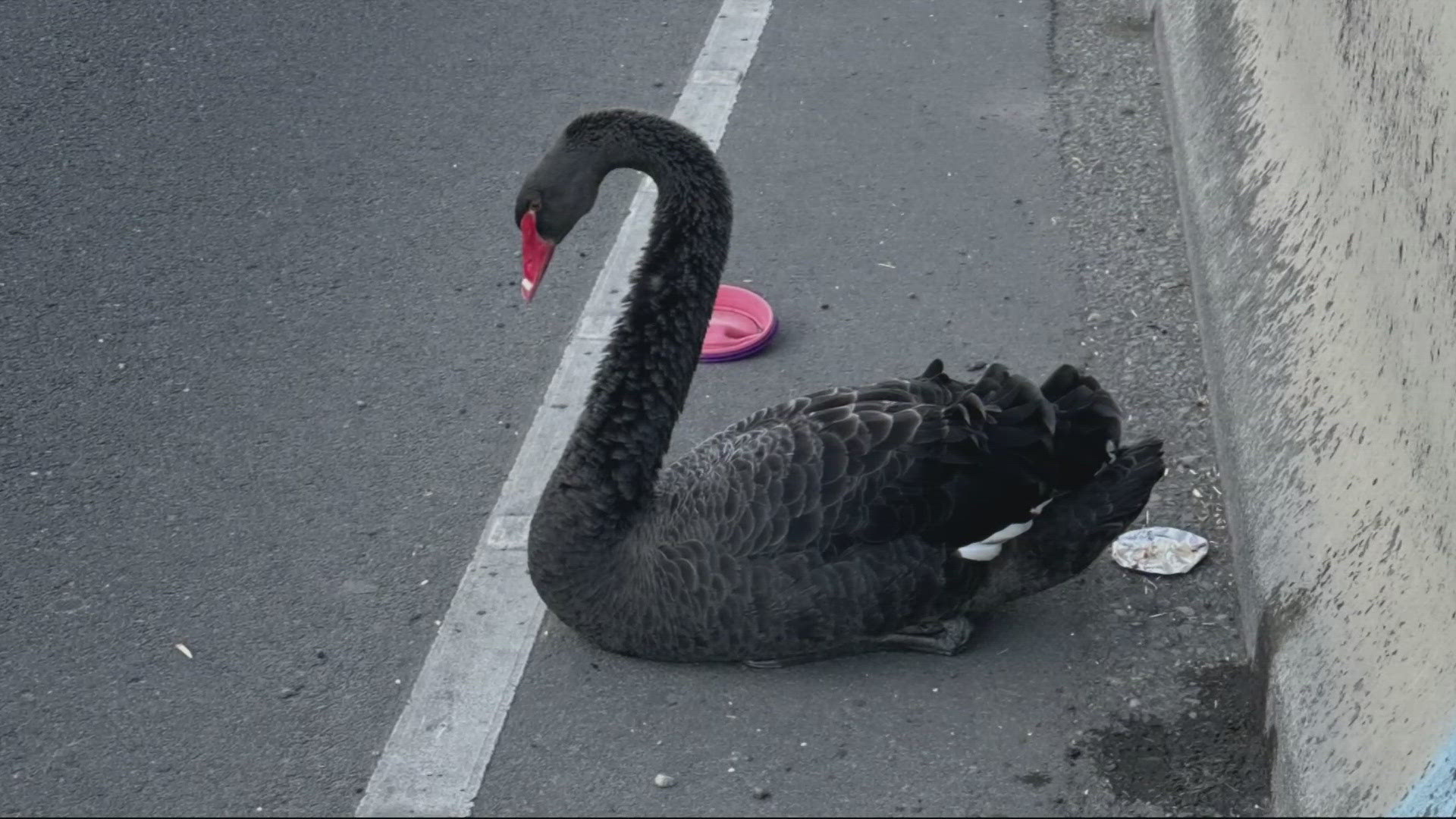PORTLAND, Ore. — A black swan was found on the side of Interstate 5 in Portland and was rescued by motorists — but the bird was not in good shape and was euthanized after being evaluated by veterinarians at DoveLewis Veterinary Emergency and Specialty Hospital.
It's a sad ending for something that started with great hope for the motorists who stopped to help, including Andrea Rubio.
Rubio took a video as the incident was unfolding, narrating it, saying, "We're on the freeway; there's so many cars. I'm just trying to get help and figure it out."
It happened at 6:30 a.m. Thursday. KGW news photographer Eric Patterson was out covering traffic for the Sunrise newscast when he happened upon the situation.
Patterson witnessed and documented as Rubio and two others managed wrap the rare swan up and get it off the freeway safely.
"I don't think we could have done it, just the one of us, so it's good that all three of us were there," said Colleen Reed, who also stopped to help.
It was unusual, to say the least; black swans are not native to Oregon. In fact, they're from far away, in Australia, so this one most certainly got here with some human help.
In 2019, a black swan was stolen from an animal sanctuary in Newberg and was never recovered. Just last year, a black swan visited off and on at the Tualatin River National Wildlife Refuge, but it hasn't been seen since December.
Was this the same bird?
That's unknown, but many say that it’s too bad the bird along the freeway didn't survive.
"Well, it's unfortunate because we never want to see wildlife get hit on the roadside; that's never a good thing," said Eva Kristofik, assistant refuge manager at Tualatin River National Wildlife Refuge Complex.
The lifesaving effort and high hopes from humans met with the reality of the situation once vets examined the magnificent creature. The black swan with its unknown past was euthanized for several reasons, starting with its physical health.
"Due to the non-native status of the swan, no apparent evidence of ownership, its poor prognosis and an avian influenza risk, euthanasia was decided to be the best and most humane option for this bird," said an Oregon Department of Fish and Wildlife spokesperson.

